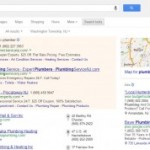If you’ve ever run ads with Google AdWords, you may have had a run in with the AdWords Quality Score. Many people don’t notice it because it isn’t shown by default in your AdWords account. However, if you hover over the speech bubble next to your keywords you will see a pop up showing the quality score for that keyword. You can also use the “columns” dropdown menu to have a new column with the quality score. Unfortunately, the only run-in many people have with the quality score is the message next to your keyword saying “keyword rarely shown due to low quality score,” leading many people to ask “How do I improve my AdWords Quality Score.” Don’t worry, we’re here to help.
What is the Quality Score?
The first step in improving the Quality Score is understanding what it is. Basically, the quality score is a rating system on a scale of 1 to 10 that shows how good of a result Google believes you are providing. If you have a rating of 1, your ad may rarely show. If you have a score of 10, you’re looking great. Typical scores should be around 5-6 (this used to be lower, but Google updated the system in late 2013). You should be able to get a significant number of keywords in the 7-8 range though, which will put you in good shape.
The AdWords Quality Score is based on three factors:
- Your keyword’s relevance to the actual search query. Remember, if you target a keyword like red shoes, Google may show your ad for red sneakers or red shoes in my hometown. By default, Google uses broad search to trigger ads (you can learn more about keyword matching types here), so the estimated relevance to what people are searching and to the other factors making up the quality score all come into play.
- Your ad’s relevance. The more relevant your ad is to what people are searching for, the better off your quality score will be. This should be common sense, but it’s amazing how many ads you will see that are irrelevant to the search terms. This is typically because people write ads not with the user in mind, but the company being advertised.
- Landing page experience. This is determined not just by the quality of site, but the relevance of the search query to what is provided on the landing page. Google hates nothing more than to send people to pages that users don’t want to be on. Make sure you have a good landing page.
So, why is this important? First, if your Quality Score is too low, your ads won’t always show. You don’t want that happening! Second, if your Quality Score is high enough, it can actually reduce your keyword bid. Google really wants to show relevant search results because it keeps people returning and consequently keeps ad revenue coming in. So, you may actually be able to gain placement higher than other ads for less money if your ads are significantly more relevant. And trust me, there are a lot of irrelevant ads out there.
3 Tips to Improve Quality Score
So, to answer the question “How do I Improve My AdWords Quality Score” here are three quick tips based on the three factors for quality score.
- Refine your keywords to be more relevant. You don’t need every keyword under the sun, only the most important ones based on your business (Well, unless you have an unlimited budget. If you do, please call me!). So, pick relevant keywords, and group them accordingly to relevant ads. Yes, common sense, but don’t try to bait people with keywords that aren’t relevant.
- Utilize Ad Groups well. Ad Groups can be used to group specific keywords to certain ad types. This ensures that your keywords are all paired with relevant ads. So, if your an orthopedic surgeon, group your hand surgery keywords (carpal tunnel, wrist surgery, etc.) with ads related to hand surgery. Don’t use general orthopedic ads, unless of course your keywords are “orthopedic surgeon” or “joint surgery” in which case you want to make those a separate Ad Group. The more specific you make your Ad Groups, the better off you’ll be for keyword score.
- Create new landing pages for your ads. Don’t just link back to a generic home page. Link to what people are looking for. You may already have that on a subpage of your site (don’t link to “njorthopedicdoctors.com” – link to “njorthopedicdoctors.com/hand-surgery”). Even better, if you can create a specific page just for that AdWords ad and optimize it for conversions too, you’ll be rolling in it. Highlight targeted content and make it easy to get in touch.
2 Bonus Quick Tips to Improve Quality Score
Need some more help, here’s two more quick tips that can help you improve quality score. First use exact match modifiers wherever you can using brackets (“[ ]”). Users will have to type in exactly that keyphrase, but if it’s searched enough, it’s worth it. I have seen quality scores move from 3 to 6 just by making that one adjustment. The other is to use proper capitalization. Yes, it sounds dumb. Yes, it matters. Although this will never matter in an organic search, for some reason Google has used this in the quality score. This is especially important in names, places, and abbreviations. Just to be safe, we recommend using multiple variations where possible.
Test It Out
Try it out. Experiment with new ads and keywords. Make sure you pay close attention to not only your quality score, but how your ads actually perform. And, if you need help, please let me know. I’m always glad to help.





